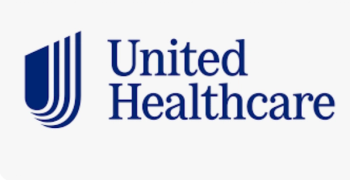
- MHE June 2022
- Volume 32
- Issue 6
Medicaid Directors Prepare for the End of the Public Health Emergency
As many asme 14 million people with Medicaid coverage stand to lose their health insurance when the COVID-19 public health emergency ends.
Unless the coronavirus wreaks more havoc on the nation’s healthcare system, the public health emergency (PHE) may end in the coming weeks or months. When it does, some 14 million Medicaid members who enrolled after the PHE began in February 2020 may lose their health insurance.
The Families First Coronavirus Response Act of 2020 required states to implement a continuous coverage requirement to ensure that workers who lost their jobs or employer-provided coverage would have insurance through Medicaid or some other source. The law also provided a temporary increase of 6.2% in federal Medicaid payments so that states could maintain continuous Medicaid enrollment for nearly all enrollees.
This requirement has been largely responsible for a 20% increase in enrollment in Medicaid and the Children’s Health Insurance Program (CHIP) since February 2020. The most recent estimate from the Kaiser Family Foundation put the number of Medicaid and CHIP members at 85.8 million as of November 2021, an increase of 14.1 million from early in 2020.
State Medicaid directors are taking steps now to do what they can to keep as many of those members enrolled in some form of health insurance.
Before the pandemic, states reviewed the income, age or disability status of those enrolled to see if they continued to qualify for the state and federal safety net program. That review was suspended during the PHE. But now state Medicaid officials face the significant task of reevaluating each person’s eligibility. Some state officials may also be assisting those enrollees in finding new jobs or new forms of health insurance or both, according to Kaiser Health News.
That means that those who gained coverage during the PHE cannot earn so much that they would no longer qualify for Medicaid. It also means they must provide whatever information states require to verify income or residency, Kaiser Health News reported.
Those most at risk are Medicaid members who are also eligible for Medicare, often referred to as dual eligible. The health policy journal Health Affairs noted that such individuals could be disproportionately harmed by unnecessary disruptions in Medicaid coverage.
Many Medicaid beneficiaries who gained coverage during the PHE may be able to enroll in plans through the ACA marketplaces, says Katherine Hempstead, a senior policy adviser for the Robert Wood Johnson Foundation.
“A lot of people may be able to get affordable insurance coverage through the marketplace because Congress increased the tax credits under the American Rescue Plan Act of 2021,” she adds. Also, some low-income Medicaid members may qualify for coverage that does not require a premium payment, she says.
Still, Hempstead is concerned for those Medicaid members who may not be able to afford coverage if the increased credits expire at year-end unless Congress extends them. If the tax credits are not renewed, many Medicaid members may be reluctant to buy health insurance on the marketplace because they would need to make premium payments, she notes.
Articles in this issue
over 3 years ago
Making Contraception More Availableover 3 years ago
A Surge of Biologics for Severe Asthmaover 3 years ago
Medicaid Managed Care Plans Coming Under Scrutinyover 3 years ago
ACO Update: The Pathways to Success Programover 3 years ago
Aduhelm: Great Expectations Fizzleover 3 years ago
Paxlovid Rebound: Rare But RealNewsletter
Get the latest industry news, event updates, and more from Managed healthcare Executive.























